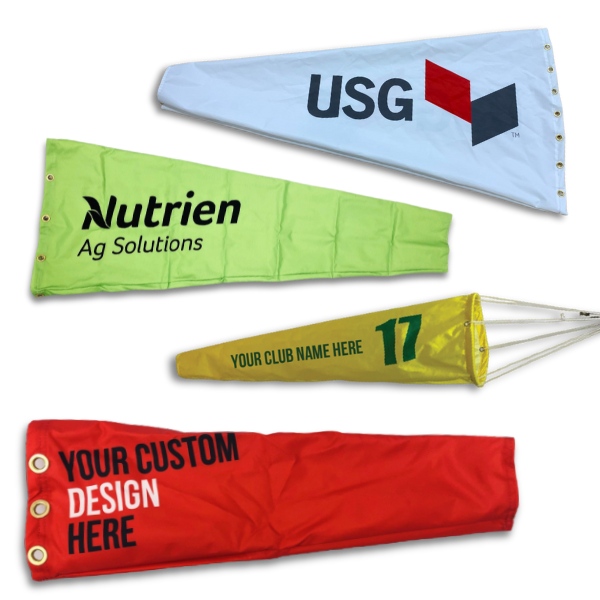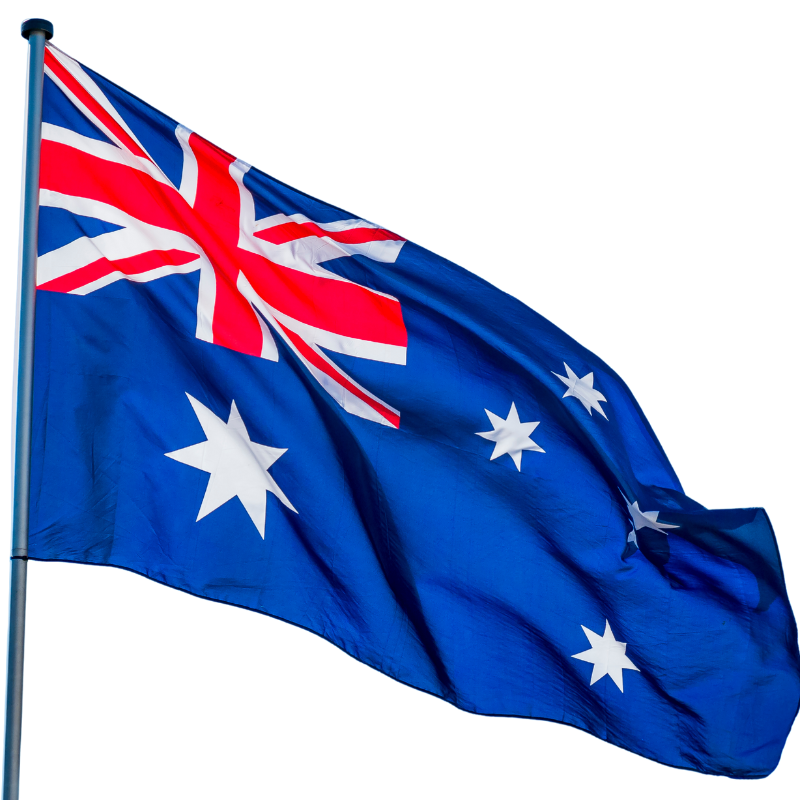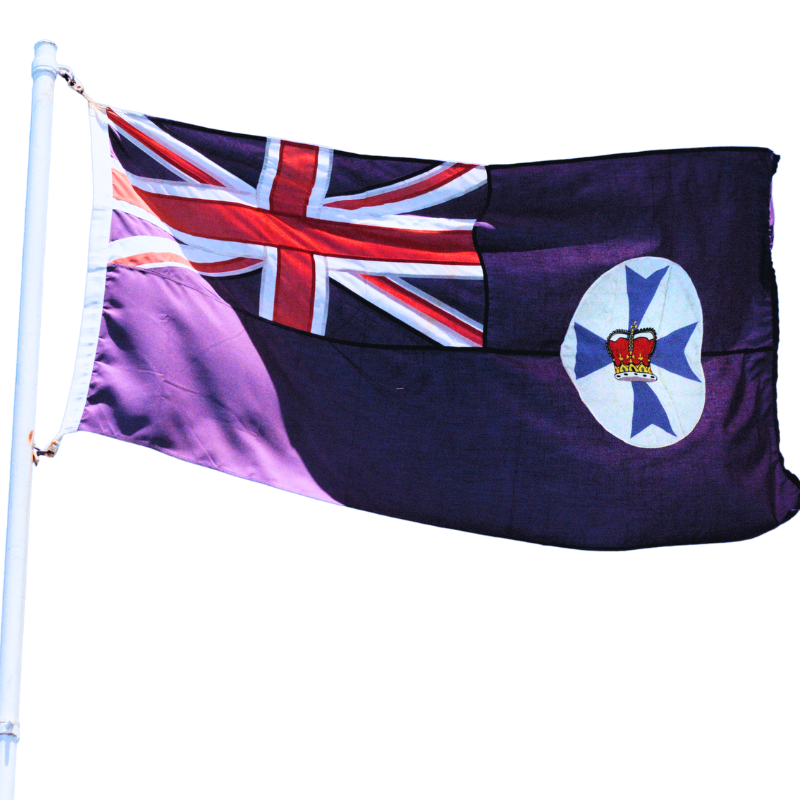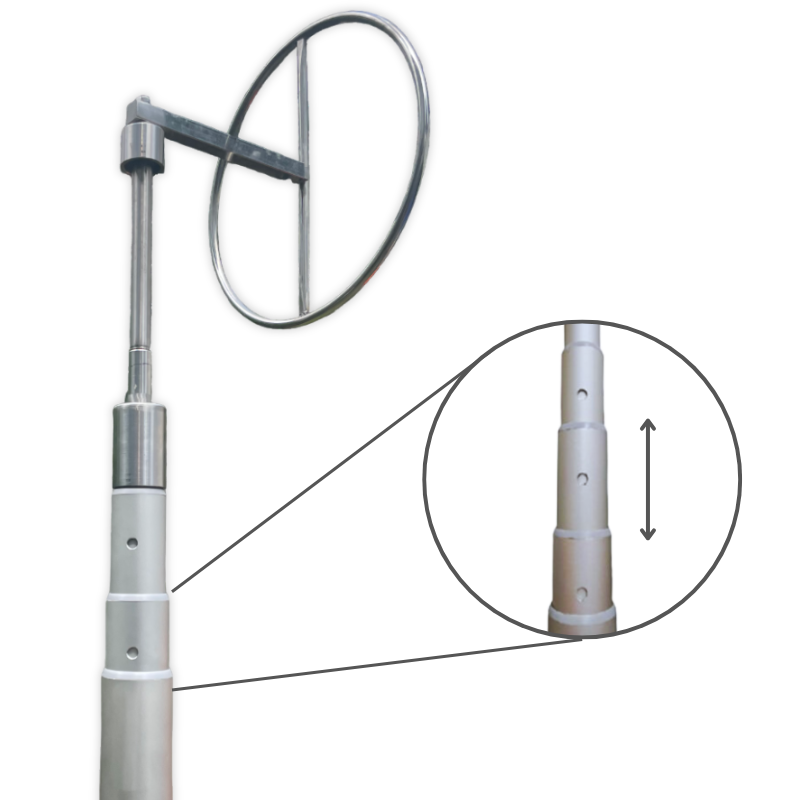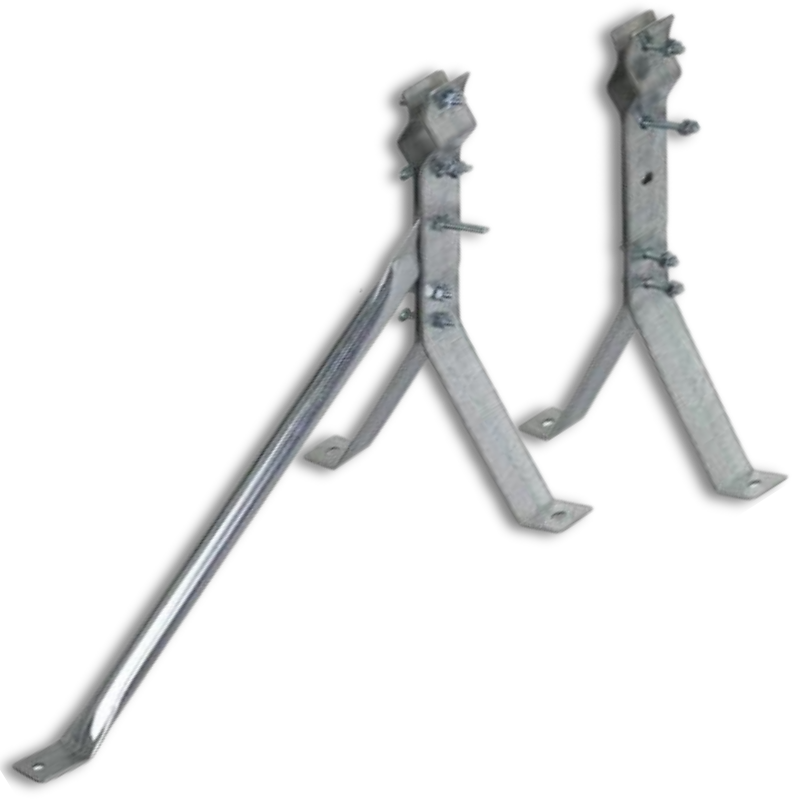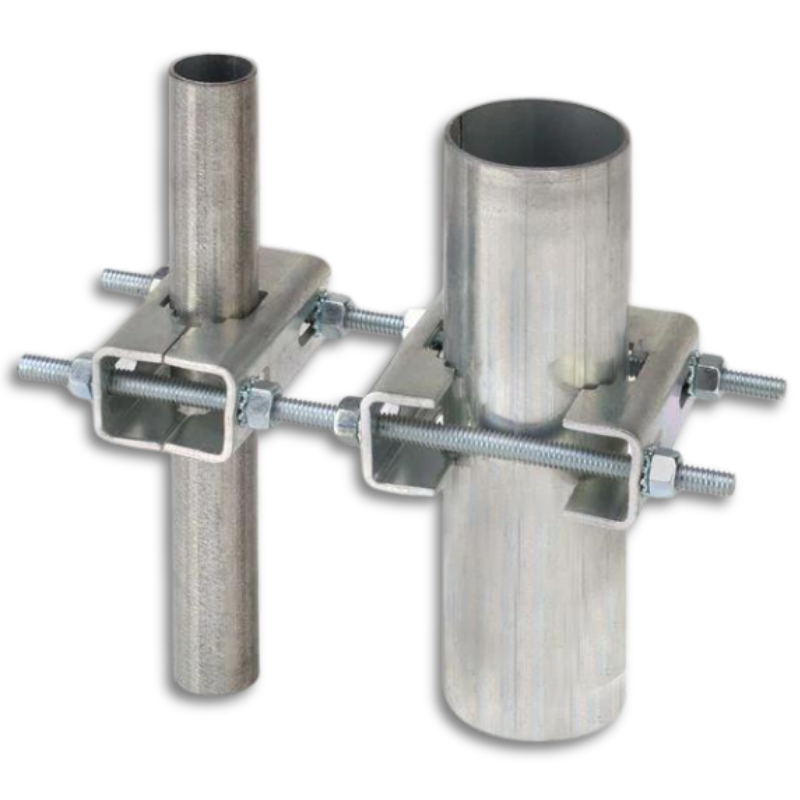Use of Windsocks for Airports and Pilots
What is an Airport Windsock?
An airport windsock—also known as a wind cone or wind tunnel flag—is a long, cone-shaped fabric sleeve that resembles a sock (hence the name). It’s mounted on a pole with a hoop frame, allowing it to swivel 360° and react to changes in wind direction and strength.
Unlike a flag, which simply flutters in the breeze, a windsock provides real-time information about both wind direction and wind speed—vital details for pilots and airfield personnel.
At airports and airstrips across Australia, you'll often spot aviation-grade striped windsocks, typically in red and white or orange and white. These colour-coded stripes offer a visual cue for windspeed—something a plain orange windsock may not convey as clearly.
Why Windsocks Matter for Pilots
Pilots rely on quick, reliable ground-level wind information during
takeoff and
landing. That's where windsocks come in.
They're usually placed next to runways or helipads and are visible from the cockpit, helping pilots:
-
Assess wind direction to adjust takeoff or landing angles
-
Estimate wind speed based on how much of the sock is inflated
-
Detect crosswinds or tailwinds that could affect control or safety
What Do the Stripes on a Windsock Mean?
Each stripe on a windsock represents an increase in windspeed—usually about 3 knots (approximately 5.5 km/h).
-
A fully inflated sock means winds of around 15 knots (28 km/h) or more
-
A partially inflated sock gives a rough visual cue to lower windspeed
This makes striped aviation windsocks especially useful on airfields where precise instruments might not be available or visible.
👉 Want to learn how to read a windsock like a pro? Check out our article here.
Why Are Windsocks Required at Airstrips?
In Australia, as in many countries, windsocks are a CASA-recommended tool at both public and private aerodromes. They serve as a low-tech, highly reliable visual aid to pilots when navigating variable weather and unpredictable wind conditions.
Many airfields install lighting systems around their windsocks to ensure visibility during night-time landings or in low-light conditions.
Standard Airport Windsock Sizes
The two most common sizes used at airports are:
-
18” x 96” (approximately 45 cm x 2.4 m)
-
36” x 144” (approximately 90 cm x 3.7 m)
These sizes are designed to fully extend when exposed to winds of 15 knots or more—ensuring clear visual communication to pilots on approach. See all of our airstrip windsocks here
Private Airstrips & Custom Aviation Windsocks
Whether you’re running a regional airstrip, flying for fun, or managing a property with a private landing strip, windsocks are an essential safety feature.
We frequently supply custom windsocks to:
-
Private pilots
-
Pastoral stations and outback strips
-
Flying clubs and agricultural operations
-
Helicopter landing zones (helipads)
Want to personalise your windsock with your family name, farm branding, or aircraft call sign? We can help you create a custom-designed aviation windsock that looks great and meets functional needs.
Get in Touch with The Custom Windsock Co
We ship across Australia and can help you find the perfect windsock setup for your airport, helipad, or paddock runway.
📧
Email
info@custom-windsocks.com
🌐 Visit custom-windsocks.com/en-au
to request a quote or place an order.
Whether you need one custom sock or a fleet’s worth of aviation-grade cones, we’ve got you covered.
Photo by Greg Rosenke on Unsplash

